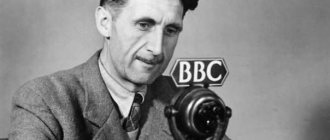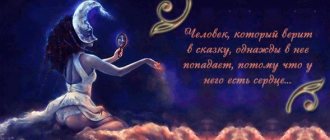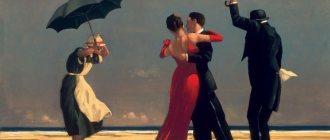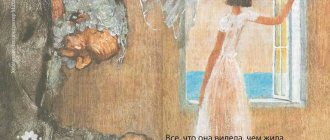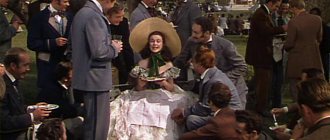Jean-Paul Sartre (1905-1980) - French philosopher, writer, essayist, playwright. A rare writer who refused the Nobel Prize in Literature awarded to him. Philosophical and other works of Jean-Paul Sartre are analyzed into quotes. June 21, 2016 marks the 111th anniversary of his birth.
Literary activity of Jean-Paul Sartre
began with the novel Nausea, which is considered
Sartre’s
, in which he rises to the deep ideas of the Gospel, but from an atheistic position.
In 1964, Jean-Paul Sartre
was awarded the Nobel Prize in Literature “for his creative work, rich in ideas, imbued with the spirit of freedom and the search for truth, which has had a tremendous influence on our time.”
Sartre
refused to accept this award, declaring his unwillingness to be beholden to any social institution and to question his independence.
One of the central concepts for the entire philosophy of Jean-Paul Sartre
is the concept of freedom.
For Sartre,
freedom was presented as something absolute, given once and for all (“man is condemned to be free”). It precedes the essence of man.
The most famous quotes and sayings of Jean-Paul Sartre, from various works:
1. The history of any human life is the history of defeat.
2. The world would do just fine without literature; it would do even better without people.
3. It seems to me that each of us has our own despair, a shadow following our self-confidence, behind our calm present.
5. We invent values. A priori life has no meaning. It is we who create meaning for it.
6. We cannot tear out a single page from our life, although we can easily throw the book itself into the fire.
7. True freedom begins on the other side of despair (probably Sartre did not say this, and this is a free translation of Orestes’ line from his play “The Flies”: “Jupiter. What should they do with despair? Orestes. Whatever: they are free, real human life begins on the other side of despair."
8. But when we say that a person is responsible, this does not mean that he is responsible only for his individuality. He is responsible for all people.
9. A gardener can decide what is good for carrots, but no one can decide for another what is good.
10. The difference between a person and an animal is that a person can commit suicide.
11. Saying “I can” leads to a positive result; saying “I can’t” does not lead to any result.
12. By existentialism we mean a doctrine that makes human life possible and which, in addition, asserts that every truth and every action presupposes some environment and human subjectivity.
13. Every present has its own future, which illuminates it and which disappears with it, becoming the past-future.
14. A person has a hole in his soul the size of God, and everyone fills it as best they can.
15. A person is, first of all, a project that is experienced subjectively, and not moss, not mold or cauliflower.
16. A person exists only to the extent that he realizes himself. He is, therefore, nothing more than the totality of his actions, nothing more than his own life.
18. Existentialism is humanism.
19. I can always choose, but I must know that even if I don’t choose anything, I still choose.
20. I think that a good half of all human actions have as their goal the realization of the unrealizable. I think that most of our smallest disappointments are explained by the fact that something unrealizable seems to us in the future, and then, some time later, already in the past - realizable, then we feel that we have not realized it.
21. I am my past, and if I am not, my past will not exist longer than me or anyone else. It will no longer have connections with the present. This certainly does not mean that it will not exist, but only that its existence will be undiscovered. I am the only one with my past existing in this world.
22. I am my own freedom.
Jean-Paul Sartre is a famous French philosopher, writer and essayist. The central concept of the philosophical concept he created was freedom, which Sartre presented as something given to a person once and for all even before the final formation of his essence.
Jean-Paul Sartre's best literary work is considered to be his debut novel Nausea, published in 1938. This work raises themes such as chaos, fate and the absurdity of human life. In addition, the novel touches on the meaning of freedom.
Sartre's quotes from Nausea, as well as philosophical statements from other novels and philosophical works, have become famous aphorisms. In 1964, the writer was awarded the Nobel Prize in Literature, but refused it due to his convictions.
Jean-Paul Charles Aimard Sartre - born June 21, 1905, Paris, France. French philosopher, representative of atheistic existentialism, writer, playwright, essayist, teacher. Winner of the 1964 Nobel Prize in Literature, which he refused. Author of the works - “Nausea”, “Words”, “Dirty Hands”, “The Age of Maturity”, “Delay”, “Death in the Soul”, “Strange Friendship”, etc. Died - April 15, 1980, Paris, France.Quotes, aphorisms, sayings, phrases - Jean-Paul Sartre
- It is forbidden to prohibit!
- Man is doomed to freedom.
- Prayer is better than tears - less noise.
- Everything was figured out except one thing - how to live.
- How right am I if you all scream so loudly?
- A person always deserves what happens to him.
- A woman is just an excuse to dream.
- Fear was good in the past when we had hope.
- You are always responsible for what you did not try to prevent.
- Like all dreamers, I confuse disappointment with truth.
- True freedom begins on the other side of despair.
- God, how they appreciate the fact that everyone thinks the same thing.
- The history of any human life is a history of defeat.
- When a person does nothing, he thinks that he is responsible for everything.
- People are like dice: we throw ourselves forward in life.
- If you are bored alone with yourself, then you are in bad company.
- The meaning of life does not exist, I will have to create it myself.
- Smart people are not evil; anger presupposes limitations.
- A lost battle is a battle that you think is lost.
- Man is made up of all people. He is equal to them all, and they are all equal to him.
- It’s simply amazing how you can lie, hiding behind common sense.
- And here’s the paradox: the rich fight with each other, but the poor die.
- A person has a hole in his soul the size of God, and everyone fills it as best they can.
- To read means, guided by signs, to come into contact with the unreal world.
- Doing anything at three o'clock in the afternoon is either too late or too early.
- The world would do just fine without literature; he would have managed even better without a person.
- Monday Tuesday Wednesday. April May June. 1924, 1925, 1926. This is called living.
- We invent values. A priori, life has no meaning. It is we who create meaning for it.
- Silence is the authentic form of the word. Only those who are able to say something are silent.
- You shouldn't do the same stupid thing twice; after all, the choice is quite large.
- Love has nothing to do with possession. Its highest manifestation is to provide freedom.
- We cannot tear out a single page from our lives, although we can easily throw the book itself into the fire.
- The difference between a person and an animal is that a person can commit suicide.
- A gardener can decide what is good for carrots, but no one can decide for another what is good.
- My memories are like gold in a purse given by the devil: you open it, and there are dry leaves.
- It is much better to have love affairs in the past than in the present - from a distance you can judge, compare, and think about it.
- Saying “I can” leads to a positive result; saying “I can’t” does not lead to any result.
- When you live alone, you completely forget what it means to tell: plausible stories disappear along with your friends.
- It is enough for one person to hate another, and hatred, passing from neighbor to neighbor, infects all of humanity.
- I can always choose, but I must know that even if I do not choose anything, I still choose.
- Each present has its own future, which illuminates it and which disappears with it, becoming the past-future.
- Clothing plays the same role for the eyes as lies do for the ears; it is a loud, trumpet-like sin that envelops and makes invisible.
- It seems to me that each of us has our own despair, a shadow following our self-confidence, behind our calm present.
- Objects should not bother us: they are not living beings. They are used, they are put in place, people live among them, they are useful - that’s all.
- Everything that exists is born without a reason, continues in weakness and dies by chance... It is meaningless that we are born, it is meaningless that we die.
- In order to sympathize with someone else's suffering, it is enough to be a person, but in order to sympathize with someone else's joy, you need to be an angel.
- The essence of man does not precede his existence, he designs himself and is doomed to freedom and responsibility, which he can no longer shift to God.
- First you need to find yourself in some exceptional circumstances, and then feel that you are bringing order into them. If all these conditions are met, the moment becomes perfect.
- A person exists only to the extent that he realizes himself. He is, therefore, nothing more than the totality of his actions, nothing more than his own life.
- Imperialist genocide can lead to more dire consequences, since the group that the Americans are trying to destroy by exterminating the Vietnamese people is all of humanity.
- You see, starting to love someone is a whole thing. You need energy, curiosity, blindness. At the beginning there is even a moment when you need to jump over the abyss: you just think about it and you don’t do it anymore. I know I'll never jump again.
Quotes from Sartre about freedom
I am my own freedom.
The French philosopher perceives this concept not as freedom, which allows for inaction, but rather as the opportunity to choose, which no one can take away. For example, a prisoner always has the freedom to make one of two decisions: to come to terms with his imprisonment or to try to free himself. What one or the other will lead to depends on further circumstances.
Man is doomed to freedom.
Paul Sartre's ideas and quotes are controversial in many ways and are often disputed by critics and other writers. However, it cannot be denied that this philosopher is one of the few figures who examined in detail the complex, multifaceted topic of freedom in his work and tried to give it a clear scientific definition.
Life before we live it is nothing, but its meaning is up to you.
This quote from Sartre shows his attitude towards the world around him. The writer believes that it is man who gives value to inanimate objects through his activities. By giving them a certain meaning and significance, people form themselves as individuals and create their own individuality.
Jean-Paul Sartre on God
Sartre is known as a representative of atheistic existentialism. Atheism is a complete denial of the existence of any gods, and existentialism is a philosophical movement whose main theme is the human essence. There is only one way to understand existential truth - you need to live as an individual, a separate person.
Man designs himself and is doomed to freedom and responsibility, which he can no longer shift to God.
This quote from Sartre explains the whole essence of this movement: God or any other mysterious “creator” cannot determine human essence. After all, people live their lives themselves, only they are responsible for the experience they acquire.
A person has a god-sized hole in his soul, and everyone fills it as best they can.
Jean-Paul Sartre denies any existence of a “creator” and his justice.
We will win the right to love with blood.
Sartre was not only a writer and philosopher, but also a playwright. He is the author of seven plays. This statement is from the work “The Devil and the Lord God,” created in 1951. The heroes are looking for answers to such eternal questions as what is good and evil, what freedom is and what it consists of.
Jean Paul Sartre quotes and aphorisms
Jean-Paul Charles Aimard Sartre - born June 21, 1905, Paris, France.
French philosopher, representative of atheistic existentialism, writer, playwright, essayist, teacher. Winner of the 1964 Nobel Prize in Literature, which he refused. Author of the works - “Nausea”, “Words”, “Dirty Hands”, “The Age of Maturity”, “Delay”, “Death in the Soul”, “Strange Friendship”, etc. Died - April 15, 1980, Paris, France. Quotes, aphorisms, sayings, phrases - Jean-Paul Sartre
- Man is doomed to freedom.
- Prayer is better than tears - less noise.
- Everything was figured out except one thing - how to live.
- How right am I if you all scream so loudly?
- A person always deserves what happens to him.
- A woman is just an excuse to dream.
- Fear was good in the past when we had hope.
- You are always responsible for what you did not try to prevent.
- Like all dreamers, I confuse disappointment with truth.
- True freedom begins on the other side of despair.
- God, how they appreciate the fact that everyone thinks the same thing.
- The history of any human life is a history of defeat.
- When a person does nothing, he thinks that he is responsible for everything.
- People are like dice: we throw ourselves forward in life.
- If you are bored alone with yourself, then you are in bad company.
- The meaning of life does not exist, I will have to create it myself.
- Smart people are not evil; anger presupposes limitations.
- A lost battle is a battle that you think is lost.
- Man is made up of all people. He is equal to them all, and they are all equal to him.
- It’s simply amazing how you can lie, hiding behind common sense.
- And here’s the paradox: the rich fight with each other, but the poor die.
- A person has a hole in his soul the size of God, and everyone fills it as best they can.
- To read means, guided by signs, to come into contact with the unreal world.
- Doing anything at three o'clock in the afternoon is either too late or too early.
- The world would do just fine without literature; he would have managed even better without a person.
- Monday Tuesday Wednesday. April May June. 1924, 1925, 1926. This is called living.
- We invent values. A priori, life has no meaning. It is we who create meaning for it.
- Silence is the authentic form of the word. Only those who are able to say something are silent.
- You shouldn't do the same stupid thing twice; after all, the choice is quite large.
- Love has nothing to do with possession. Its highest manifestation is to provide freedom.
- We cannot tear out a single page from our lives, although we can easily throw the book itself into the fire.
- The difference between a person and an animal is that a person can commit suicide.
- A gardener can decide what is good for carrots, but no one can decide for another what is good.
- My memories are like gold in a purse given by the devil: you open it, and there are dry leaves.
- It is much better to have love affairs in the past than in the present - from a distance you can judge, compare, and think about it.
- Saying “I can” leads to a positive result; saying “I can’t” does not lead to any result.
- When you live alone, you completely forget what it means to tell: plausible stories disappear along with your friends.
- It is enough for one person to hate another, and hatred, passing from neighbor to neighbor, infects all of humanity.
- I can always choose, but I must know that even if I do not choose anything, I still choose.
- Each present has its own future, which illuminates it and which disappears with it, becoming the past-future.
- Clothing plays the same role for the eyes as lies do for the ears; it is a loud, trumpet-like sin that envelops and makes invisible.
- It seems to me that each of us has our own despair, a shadow following our self-confidence, behind our calm present.
- Objects should not bother us: they are not living beings. They are used, they are put in place, people live among them, they are useful - that’s all.
- All things are born without a cause, continue in weakness, and die by chance. It is meaningless that we are born, it is meaningless that we die.
- In order to sympathize with someone else's suffering, it is enough to be a person, but in order to sympathize with someone else's joy, you need to be an angel.
- The essence of man does not precede his existence, he designs himself and is doomed to freedom and responsibility, which he can no longer shift to God.
- First you need to find yourself in some exceptional circumstances, and then feel that you are bringing order into them. If all these conditions are met, the moment becomes perfect.
- A person exists only to the extent that he realizes himself. He is, therefore, nothing more than the totality of his actions, nothing more than his own life.
- Imperialist genocide can lead to more dire consequences, since the group that the Americans are trying to destroy by exterminating the Vietnamese people is all of humanity.
- You see, starting to love someone is a whole thing. You need energy, curiosity, blindness. At the beginning there is even a moment when you need to jump over the abyss: you just think about it and you don’t do it anymore. I know I'll never jump again.
About loneliness
The philosopher believed that the concepts of loneliness and alienation are inextricably linked with the theme of freedom. It is these questions that are addressed in his most famous novel, Nausea. The title of the work was chosen for a reason: nausea is what material objects cause in an alienated person.
Such a person is the main character of the novel by Jean-Paul Sartre - Antoine Roquentin.
People. People need to be loved. People are worthy of admiration. Now I'm going to throw up inside out.
The character rarely communicates with others and cannot express his concerns to anyone. However, Antoine does not try to find a suitable society for himself, but, on the contrary, avoids it. This quote from Sartre from the novel expresses the main character’s entire attitude towards people.
When you live alone, you completely forget what it means to tell: plausible stories disappear along with your friends.
Freedom becomes for Antoine not a blessing, but a grave punishment. But when he goes out to the city square and watches the crowd of people rushing about their business, he looks at her, rather, with pity.
My memories are like gold in a purse given by the devil: you open it, and there are dry leaves.
Not only the present, but also the past does not accept Antoine. Despite his memory, rich in memories of various travels, the past is dead and destroyed for him.
Other people about Sartre
I always explained his enthusiasm by the desire to be in the first rank. He was terribly afraid that history might spit him out, that he might lose his audience because the young people would go in a different direction.
This quote is words about Sartre that also belong to the philosopher from a series of interviews with Stanislav Beres. The phrase is heard in the chapter “The Passion of Storytelling.”
In the later published expanded version of the book, entitled “Thus Spoke... Lem,” you can also find a mention of Jean-Paul Sartre.
Look, today there is absolutely nothing left of his legacy.
Russian postmodernist writer Viktor Pelevin, in his satirical story “A Brief History of Paintball in Moscow,” published in 1997, analyzes the French philosopher’s statement “Hell is others” (in French, Sartre’s quote sounds like L’enfer,
c’est
les
autres) .
True freedom begins on the other side of despair.
Jean-Paul Sartre, “The Wall”
Here is time in its nakedness, it comes slowly, you have to wait for it, and when it comes, you feel sick because you notice that it has been here for a long time.
Jean-Paul Sartre, “Nausea”
And before, when I met with Annie after a break, even if we didn’t see each other for only a day, even if it was the morning after sleep, I never knew how to find the words that she was waiting for, which would suit her dress , to the weather, to the last phrases that we exchanged the day before.
Jean-Paul Sartre, Nausea
This idea is wrong.
If it were true, it would have already occurred to someone. Jean-Paul Sartre, “Nausea”
First you need to find yourself in some exceptional circumstances, and then feel that you are bringing order to them.
If all these conditions are met, the moment becomes perfect. Jean-Paul Sartre, Nausea
First there are harbingers.
Then a winning situation slowly, majestically enters people's lives. And here the question arises, do you want to turn it into a perfect moment. Jean-Paul Sartre, “Nausea”
This is exactly what you need to beware of - portraying as strange something that is not the slightest strange.
The diary, in my opinion, is why it is dangerous: you are always on guard, you exaggerate everything and constantly rape the truth. Jean-Paul Sartre, “Nausea”
I’m starting to think that nothing can ever be proven.
Jean-Paul Sartre, Nausea
Three hours.
Three hours is always too late or too early for anything you want to do. Strange time of day. And today it’s simply unbearable. Jean-Paul Sartre, “Nausea”
The faces of other people are endowed with meaning.
Mine is not. I don't even know if it's beautiful or ugly. I think it's ugly - because that's what I was told. But I don't care. In fact, I am outraged that such properties can be attributed to a face at all - it’s the same as calling a handful of earth or a piece of rock handsome or ugly. Jean-Paul Sartre, “Nausea”
Maybe it’s impossible to understand your own face.
Or maybe it's because I'm alone? People who communicate with other people get used to seeing themselves in the mirror through the eyes of their friends. I have no friends - maybe that's why my flesh is so exposed? Jean-Paul Sartre, “Nausea”
Time is too capacious, it cannot be filled.
Whatever you put into it, everything softens and stretches. Jean-Paul Sartre, "Nausea"
I'm fed up with animate objects, dogs, people, all these spontaneously moving soft masses.
Jean-Paul Sartre, “Nausea”
I wanted the moments of my life to follow each other, lining up in order, like the moments of a life that you remember.
And this is like trying to grab time by the tail. Jean-Paul Sartre, “Nausea”
The past is the luxury of the owner.
Jean-Paul Sartre, Nausea
The doctor has experience.
Having experience is his profession; doctors, priests, judges and officers know man by heart, as if they themselves had created him. Jean-Paul Sartre, “Nausea”
In my opinion, the only reason the world does not change beyond recognition overnight is because it is lazy.
But today he looked as if he wanted to be different. And in this case, anything can happen, absolutely anything. Jean-Paul Sartre, “Nausea”
Experience is not just a last refuge, a barrier from death.
It is also a right—the right of the elderly. Jean-Paul Sartre, “Nausea”
I am, I exist, I think, therefore I exist, I exist because I think, but why do I think?
I don’t want to think anymore, I am, because I think that I don’t want to be, I think that I... because... Jean-Paul Sartre, “Nausea”
I myself have no troubles - I’m rich like a rentier, I have no bosses, wives and children too;
I am a creature - that is my only trouble. But this trouble is so vague, so metaphysically abstract, that I am ashamed of it. Jean-Paul Sartre, "Nausea"
German writer, sentimentalist and pre-romanticist, author of satirical works, esthetician and publicist, took his pseudonym (French version of his own names) out of admiration for Jean-Jacques Rousseau, Jean Paul owns the famous expression "world's sorrow"
fun
Fun is the sky under which everything blooms except anger.
eternity
Eternity is the time when ideals exist.
They say that the best rule of politics is not to manage too much. This rule is just as true in education.
He who has never sought friendship or love is a thousand times poorer than he who has lost both.
Only in moments of meeting and parting do people know how much love their hearts held.
Anyone who can do without love in old age did not love in his youth, for years are no obstacle to love.
The easiest way for people to reveal their intentions is when they fail to achieve them.
There are plant people, animal people, god people.
Courage is not about facing danger boldly, but about facing it with open eyes.
Of all the arts, music is the most humane and widespread.
Music is the poetry of the air.
Oh music! The echo of a distant harmonious world! The sigh of an angel in our soul! When the word, and the hug, and the eye filled with tears fade away, when our dumb hearts languish alone behind the bars of our chest - oh, then only thanks to you can they send each other a response from their prisons, unite their distant groans in one desert.
True morality is directly poetic, and poetry, in turn, is indirectly moral.
The insight of the mind is the conscience of wit.
decency
Respectable people make more enemies with their speeches than bad people with their deeds.
Humble is not the one who is indifferent to praise, but the one who is attentive to blame.
A person’s conscience may be mistaken, but the person himself may not be unscrupulous, just as one can have false taste without falling into bad taste.
Small sufferings drive us crazy, but great ones bring us back to ourselves. A cracked bell makes a dull sound: break it into two parts and it will make a clear sound again.
superstition
Superstition is a monstrous, almost irresistible feeling, thanks to which a peaceful person stands, as it were, in the middle of a gigantic mill of the universe, stunned and alone.
He who boasts of knowing a secret has already discovered one half of it, and will not hesitate to reveal the other.
Longing for love is love itself.
Everything worthy of respect was accomplished in solitude, that is, away from society.
aesthetics
Taste is an aesthetic conscience.
Jean-Paul Sartre - quotes from books
. I like to be indignant at capitalism, but I wouldn’t want it to be destroyed, because then I won’t have any more excuses for indignation, I like to say “no”, that’s all. →→→
I have nothing to defend: I am not proud of my life, I don’t have a penny. My freedom? She weighs me down: I have been free for many years, I don’t know why. I am eager to change freedom. →→→
If you do something tragic, it means you take yourself seriously.
Ivish was afraid to leave places and people, even if she hated them, because the future scared her. She gave herself up with dissatisfied indifference to the most annoying situations and in the end. →→→
He thought without much pleasure that he would take Ivish to the Gauguin exhibition. Mathieu loved to show her beautiful paintings, beautiful films, beautiful objects, because he himself. →→→
To exist is to drink yourself without being thirsty.
Real human life begins on the other side of despair.
My youth, submissive to your will, stood before me, like a bride begging a groom who wants to leave her - the last time I saw my youth. And suddenly, suddenly, freedom. →→→

